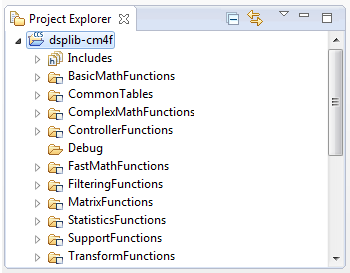SPMA041G January 2012 – October 2015 TM4C1230C3PM , TM4C1230C3PM , TM4C1230D5PM , TM4C1230D5PM , TM4C1230E6PM , TM4C1230E6PM , TM4C1230H6PM , TM4C1230H6PM , TM4C1231C3PM , TM4C1231C3PM , TM4C1231D5PM , TM4C1231D5PM , TM4C1231D5PZ , TM4C1231D5PZ , TM4C1231E6PM , TM4C1231E6PM , TM4C1231E6PZ , TM4C1231E6PZ , TM4C1231H6PGE , TM4C1231H6PGE , TM4C1231H6PM , TM4C1231H6PM , TM4C1231H6PZ , TM4C1231H6PZ , TM4C1232C3PM , TM4C1232C3PM , TM4C1232D5PM , TM4C1232D5PM , TM4C1232E6PM , TM4C1232E6PM , TM4C1232H6PM , TM4C1232H6PM , TM4C1233C3PM , TM4C1233C3PM , TM4C1233D5PM , TM4C1233D5PM , TM4C1233D5PZ , TM4C1233D5PZ , TM4C1233E6PM , TM4C1233E6PM , TM4C1233E6PZ , TM4C1233E6PZ , TM4C1233H6PGE , TM4C1233H6PGE , TM4C1233H6PM , TM4C1233H6PM , TM4C1233H6PZ , TM4C1233H6PZ , TM4C1236D5PM , TM4C1236D5PM , TM4C1236E6PM , TM4C1236E6PM , TM4C1236H6PM , TM4C1236H6PM , TM4C1237D5PM , TM4C1237D5PM , TM4C1237D5PZ , TM4C1237D5PZ , TM4C1237E6PM , TM4C1237E6PM , TM4C1237E6PZ , TM4C1237E6PZ , TM4C1237H6PGE , TM4C1237H6PGE , TM4C1237H6PM , TM4C1237H6PM , TM4C1237H6PZ , TM4C1237H6PZ , TM4C123AE6PM , TM4C123AE6PM , TM4C123AH6PM , TM4C123AH6PM , TM4C123BE6PM , TM4C123BE6PM , TM4C123BE6PZ , TM4C123BE6PZ , TM4C123BH6PGE , TM4C123BH6PGE , TM4C123BH6PM , TM4C123BH6PM , TM4C123BH6PZ , TM4C123BH6PZ , TM4C123BH6ZRB , TM4C123BH6ZRB , TM4C123FE6PM , TM4C123FE6PM , TM4C123FH6PM , TM4C123FH6PM , TM4C123GE6PM , TM4C123GE6PM , TM4C123GE6PZ , TM4C123GE6PZ , TM4C123GH6PGE , TM4C123GH6PGE , TM4C123GH6PM , TM4C123GH6PM , TM4C123GH6PZ , TM4C123GH6PZ , TM4C123GH6ZRB , TM4C123GH6ZRB , TM4C123GH6ZXR , TM4C123GH6ZXR , TM4C1290NCPDT , TM4C1290NCPDT , TM4C1290NCZAD , TM4C1290NCZAD , TM4C1292NCPDT , TM4C1292NCPDT , TM4C1292NCZAD , TM4C1292NCZAD , TM4C1294KCPDT , TM4C1294KCPDT , TM4C1294NCPDT , TM4C1294NCPDT , TM4C1294NCZAD , TM4C1294NCZAD , TM4C1297NCZAD , TM4C1297NCZAD , TM4C1299KCZAD , TM4C1299KCZAD , TM4C1299NCZAD , TM4C1299NCZAD , TM4C129CNCPDT , TM4C129CNCPDT , TM4C129CNCZAD , TM4C129CNCZAD , TM4C129DNCPDT , TM4C129DNCPDT , TM4C129DNCZAD , TM4C129DNCZAD , TM4C129EKCPDT , TM4C129EKCPDT , TM4C129ENCPDT , TM4C129ENCPDT , TM4C129ENCZAD , TM4C129ENCZAD , TM4C129LNCZAD , TM4C129LNCZAD , TM4C129XKCZAD , TM4C129XKCZAD , TM4C129XNCZAD , TM4C129XNCZAD
3.3 Adding the dsplib Source Code
Before adding the dsplib source code to the project, you should familiarize yourself with the CMSIS library structure. Open your preferred file navigation tool and navigate to the directory where the CMSIS .zip file downloaded from ARM was extracted. Then, descend to CMSIS-<version>/CMSIS/DSP_Lib/Source/. This is the directory ARM uses to group the DSP functions into various sub-categories. The ARM directory contains the project files necessary to build the DSP library in uVision with ARM’s compiler, and the GCC directory contains the project files to build the DSP library in uVision using the open source GCC compiler. All other directories contain the source code necessary to build the category of functions indicated by the directory name.
To add the dsplib source code to the dsplib project in Code Composer Studio:
- Right-click the dsplib-cm4f project in the Project Explorer and click Import…
- Click General to expand and then click File System. Click Next.
- Click the Browse button and navigate to the location of the CMSIS DSP library source code.
- Select the top level Source directory and click OK.
- When the Source directory appears in the Import window, click the checkbox beside the folder to select all of the contents of that folder to be imported.
- Deselect the ARM and GCC folders by clicking to the left of the checkbox.
- Click the TransformFunctions folder, which causes the contents of that folder to be displayed in the panel on the right.
- Uncheck the box beside arm_bitreversal2.S.
- Make sure that the Into Folder: text field contains the name of the DSP library project where you want to import the files (for this example, dsplib-cm4f).
- Check the Overwrite existing resources without warning. Verify the Create top-level folder check box is deselected.
- Click the Advanced button, then click to select the Create links in workspace checkbox.
- Verify the Create link locations relative to: checkbox is selected. If it is not, click to select it.
- Verify that the drop-down menu of environment variables is set to PROJECT_LOC (see Figure 3). If there are no variables listed in the drop-down menu, select Edit Variables… and add a variable to represent the location of the dsplib project file.
- Click Finish to link the DSP_Lib source code into the project.
 Figure 3. Importing the DSP_Lib Source Code
Figure 3. Importing the DSP_Lib Source Code  Figure 4. The Project Explorer Window After the DSP_Lib Code has Been Imported
Figure 4. The Project Explorer Window After the DSP_Lib Code has Been Imported